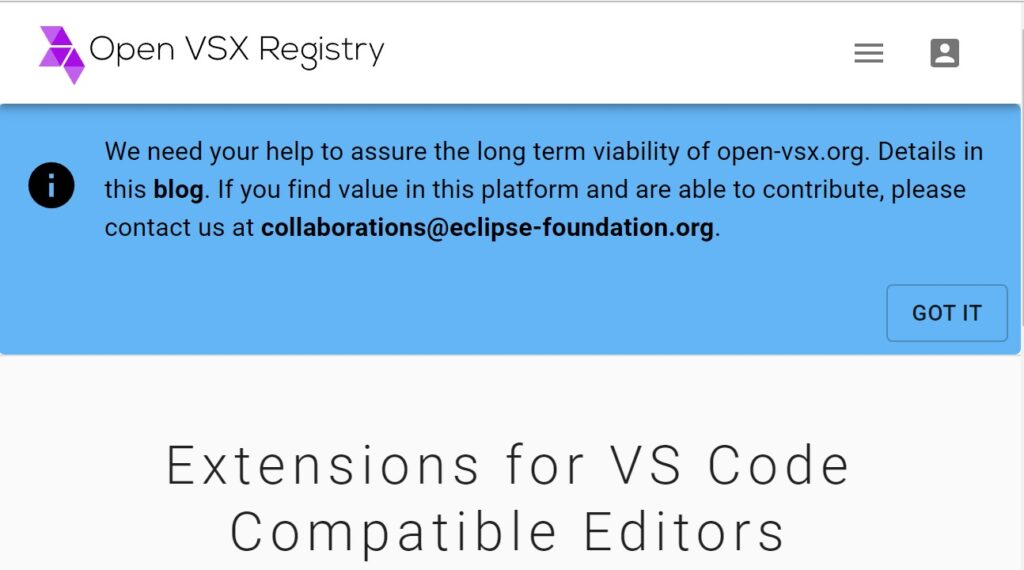
The Eclipse Foundation has formed the Open VSX Working Group, to support and promote the extension registry for “VS Code compatible editors,” an essential service for developers using forks of Microsoft’s ubiquitous cross-platform editor and IDE.
The new working group’s members include Google, Salesforce, Huawei, Posit, Siemens and STMicroelectronics. The formation of the group follows an appeal from Eclipse Community Manager John Kellerman earlier this year, in which he stated: “If we do not generate enough interest in this proposed working group, we’ll be forced to decommission the Open VSX registry by the end of May, 2023.”

The source for Microsoft’s Visual Studio Code is mostly open source under the MIT License, and the company provides Code-OSS which is the base source code for VS Code and unlike the product itself, is entirely under the MIT license. VS Code though is described as a “distribution” of Code-OSS and shipped under a separate Microsoft license. The power of VS Code comes from its many extensions, and these are obtained by the Visual Studio Marketplace under further terms which limit its use to “in-scope products and services”, or specifically, Microsoft Visual Studio, VS Code, GitHub Codespaces and Azure DevOps. The terms state that “you may install and use Marketplace Offerings only with In-Scope Products and Services.”
Microsoft recently introduced the C# Dev Kit, an extension which requires a paid license for enterprise use, underlining the fact that not all VS Code extensions are free.
The marketplace restriction is a problem for open source forks of VS Code such as VSCodium or products based on Eclipse Theia. The solution is the Open VSX Registry which hosts compatible extensions but without the onerous VS Marketplace terms of use. Open VSX was first made available in 2021.
According to Eclipse, the Open VSX Registry hosts “nearly 3,000 extensions from over 1,500 different publishers.” While this sounds a lot, VS Marketplace has over 48,000 extensions, making it challenging for Open VSX to compete.
JetBrains, makers of IntelliJ, the most popular commercial IDE after Visual Studio, runs its own plugin marketplace which claims “7369 IntelliJ Platform plugins”, still a long way short of the numbers for the VS Marketplace.
According to surveys like this VS Code dominates IDEs, being used by 74% of professional developers. Microsoft is also in second place (just) with its Windows and Mac product Visual Studio. This gives the company a potential advantage when it comes to further services such as remote development environments.
One of the new working group members is Google, whose director of developer tools Thomas DeMeo stated that “at Google Cloud, we want to give our customers options when it comes to working with their preferred IDE,” a hint that without Open VSX those options will be limited. Google has an IDE based on Code-OSS which uses Open VSX – though when it comes to web browsers, the relationship between Google Chrome and the open source Chromium is similar to that between VS Code and Code-OSS.
Open source advocates will be thankful for the continued existence of Open VSX; though at this point it looks like the biggest risk to Microsoft’s IDE market share is not from alternative versions but from the company itself. Following the introduction of C# Dev Kit, open source veteran and former Microsoft Distinguished Engineer Miguel de Icaza tweeted that “the recent changes to VSCode for .NET developers are a perfect example of enshitification.”
